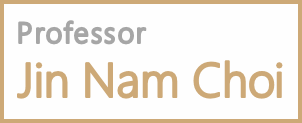45. *Park, J., Chae, H., & Choi, J. N. (2017). The need for status as a hidden motive of knowledge-sharing behavior: An application of costly signaling theory. Human Performance, 30, 21-37.
* Park, J., Chae, H. & Choi, J. N. (2017). The need for status as a hidden motive of knowledge-sharing behavior: An application of costly signaling theory. Human Performance, 30, 21-37.
22. *Rhee, Y. W., & Choi, J. N. (2017). Knowledge Management Behavior and Individual Creativity: Goal Orientations as Antecedents and In-Group Social Status as Moderating Contingency. Journal of Organizational Behavior, 38, 813-832.
*Rhee, Y. W., & Choi, J. N. (2017). Knowledge Management Behavior and Individual Creativity: Goal Orientations as Antecedents and In-Group Social Status as Moderating Contingency. Journal of Organizational Behavior, 38, 813-832.
3. Choi, J. N., Chung, G. H., Sung, S. Y., Butt, A. N., Soliman, M., & Chang, J. W. (2015). Does emotional intelligence matter in interpersonal processes? The mediating role of emotion management. Seoul Journal of Business, 21, 45-70.
Choi, J. N., Chung, G. H., Sung, S. Y., Butt, A. N., Soliman, M., & Chang, J. W. (2015). Does emotional intelligence matter in interpersonal processes? The mediating role of emotion management. Seoul Journal of Business, 21, 45-70.
43. Gong, T., & Choi, J. N. (2016). Effects of task complexity on creative customer behavior. European Journal of Marketing, 50, 1003-1023.
Gong, T., & Choi, J. N. (2016). Effects of task complexity on creative customer behavior. European Journal of Marketing, 50, 1003-1023.
40. Yoon, H. J., Sung, S. Y., Choi, J. N., Lee. K., & Kim, S. (2015). Tangible and intangible rewards and employee creativity: The mediating role of situational extrinsic motivation. Creativity Research Journal, 27, 383-393.
Yoon, H. J., Sung, S. Y., Choi, J. N., Lee. K., & Kim, S. (2015). Tangible and intangible rewards and employee creativity: The mediating role of situational extrinsic motivation. Creativity Research Journal, 27, 383-393.
24. * Chang, J. W., Hwang, W., & Choi, J. N. (2012). Is task autonomy beneficial for creativity? Prior task experience and self-control as boundary conditions. Social Behavior and Personality, 40, 705-724.
* Chang, J. W., Hwang, W., & Choi, J. N. (2012). Is task autonomy beneficial for creativity? Prior task experience and self-control as boundary conditions. Social Behavior and Personality, 40, 705-724.
20. *Shin, Y., & Choi, J. N. (2010). What makes a group of good citizens? The role of perceived group-level fit and critical psychological states in organizational teams. Journal of Occupational and Organizational Psychology, 83, 531-552.
* Shin, Y., & Choi, J. N. (2010). What makes a group of good citizens? The role of perceived group-level fit and critical psychological states in organizational teams. Journal of Occupational and Organizational Psychology, 83, 531-552.
16. *Sung, S. Y., & Choi, J. N. (2009). Do Big 5 personality factors affect individual creativity? The moderating role of extrinsic motivation. Social Behavior and Personality, 37, 941-956.
* Sung, S. Y., & Choi, J. N. (2009). Do Big 5 personality factors affect individual creativity? The moderating role of extrinsic motivation. Social Behavior and Personality, 37, 941-956.
12. *Chang, J. Y., Choi, J. N., & Kim, M. U. (2008). Turnover of highly educated R&D professionals: The role of pre-entry cognitive style, work values, and career orientation. Journal of Occupational and Organizational Psychology, 81, 299-317.
* Chang, J. Y., Choi, J. N., & Kim, M. U. (2008). Turnover of highly educated R&D professionals: The role of pre-entry cognitive style, work values, and career orientation. Journal of Occupational and Organizational Psychology, 81, 299-317.
6. * Chu, A. H. C., & Choi, J. N. (2005). Rethinking procrastination: Positive effects of “active” procrastination behavior on attitudes and performance. Journal of Social Psychology, 145, 245-264.
* Chu, A. H. C., & Choi, J. N. (2005). Rethinking procrastination: Positive effects of “active” procrastination behavior on attitudes and performance. Journal of Social Psychology, 145, 245-264.
